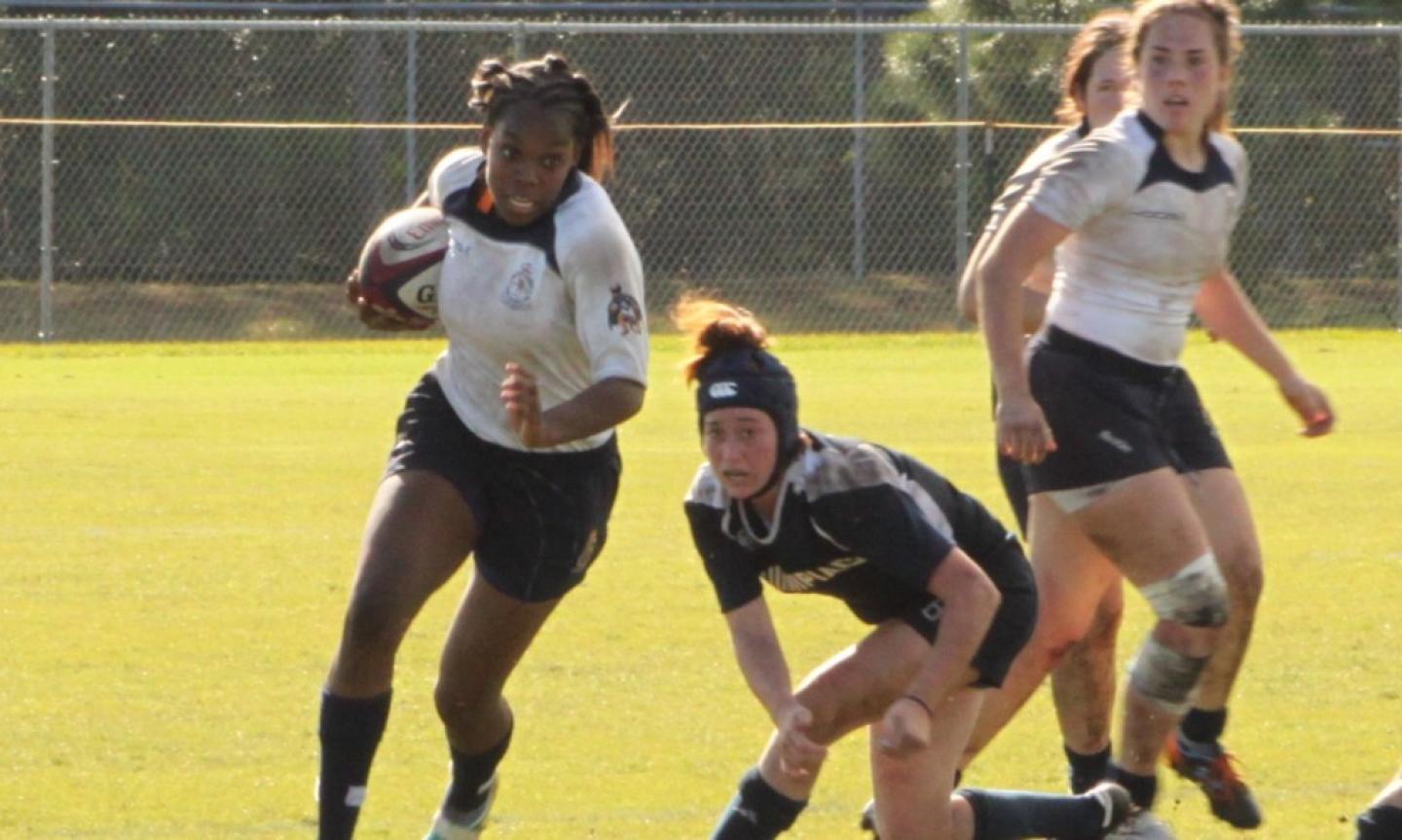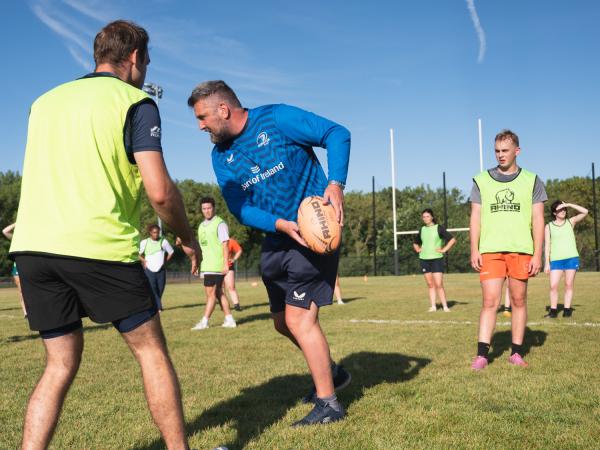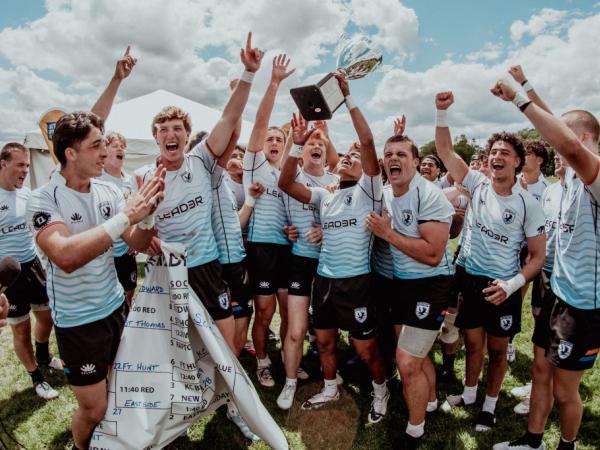USA Rugby released the fall championship sites on Wednesday, Oct. 21, which coincided with ACRA’s statement recalling all hosting support of the women’s DI and DII college playoffs (read the full statement). What does that mean? Let’s first briefly review the history of these two entities, as concerns the championships.
An inconsolable rift occurred along seasonality issues (among others) within the women’s college community, and the majority of the rugby-dense Northeast and Midwest joined a new organizing body – ACRA – in fall 2013. The group promoted a fall 15s/spring 7s schedule, and hosted championships for both versions of the sport. Consequently, the majority of ACRA teams removed themselves from USA Rugby’s championship pathways, and the 2013-14 national championships suffered as a result.
For the 2014-15 season, USA Rugby adopted a split-season championship, where fall teams played toward a fall title, and the victor played the winner of the spring teams’ championship to name a national champion. In other words, the ACRA teams were reintegrated into the national fold, and the organizing body shared hosting responsibilities with USA Rugby for the fall tournament. This joint venture was a necessity because USA Rugby’s decision to adopt the fall championship wasn’t finalized until late in the season, and ACRA had already done all of the logistical work to make the championship happen.
That brings us to 2015-16. The split-season championship is still in place, but the relationship between USA Rugby and ACRA has changed. The latter continued business as usual, proactively planning the fall championship during the summer. However, now that the event was part of the USA Rugby lineup, the national governing body was ready to be the main decision-maker. ACRA started to notice this shift in partnership during the summer. From the ACRA statement:
On August 29, a verbal agreement was made that the Final Four would be held in Palm Coast, Florida, the weekend after Thanksgiving; however, no formal recognition of this information was provided by USA Rugby. Throughout the summer and fall rugby season, ACRA has offered help and done much of the logistical and organizational work to host another quality Fall 15s Championship. ACRA has asked for early selection and confirmation of both regional and Final Four competition sites, with little or no response from USA Rugby.
“There was no verbal agreement on Palm Coast, but we discussed the possibility, and we evaluated the Palm Coast venue along with the other venues,” responded USA Rugby College Coordinator Rich Cortez. “The comparison between a soccer complex and an on-campus setting in a rugby stadium with permanent seating along with university support swayed the decision. Further, and most importantly, the women's games will be enhanced through a production worthy of a national championship event along with the men’s DII finals.”
As to timing, in late September the Women’s College Competitions Committee (WCCC) leaned on Kutztown's Sean Cobb and Vassar’s Tony Brown, both active members of ACRA, to construct the women’s DII brackets and submit them for review (see the finished product). Three weeks later, the regional championship sites were announced. The year prior, brackets, seeds, and regional sites were announced on Oct. 24.
From the ACRA statement:
This is a long line of delays and a shameful way to treat women’s rugby. One of the founding missions of ACRA is to advance collegiate women’s rugby. Unfortunately, this mission is being derailed by our colleagues at USA Rugby once again discarding, ignoring, and devaluing women’s rugby.
“We need to do a better job,” Cortez conceded. “I understand that, for small schools especially, travel logistics need to be coordinated with the university. There were delays, but it had nothing to do with women’s rugby. I would love to secure dates and venues two years in advance, but circumstances always change. We had agreed, in our conversation, that we would do our best to have the venues announced by October 16. The need to put the Regionals in the best locations for the teams on track to advance led to the announcement of sites shortly after that goal.”
As the fall unfolded, ACRA read the writing on the wall and, as cited from its statement, was less than thrilled:
ACRA is withdrawing from any official capacity of running and hosting the fall 2015 post-season, due to USA Rugby’s untenable business practices and disregard. We wish the very best for all teams.
“USA Rugby was always going to support and run the championship, and it’s going to be fantastic,” Cortez responded. “And we have every intention of getting input from playoff-bound teams, expanding the WCCC so the playoffs makes sense. We worked with some very committed people on the WCCC on the DII seeds and brackets – and those collaborations have been fruitful.”
So it’s a wait-and-see situation as to the effect of ACRA’s absence from post-season, but next year might provide a better answer when the process restarts itself. Granted, no one knows the fall teams better than the ACRA leadership – they represent decades of college rugby in the Northeast and Midwest. But Cortez indicated some changes will aid in the future management.
“Right now there are 32 teams playing toward the DII fall championship – with the winner advancing to the National Championship game,” Cortez said. “When combined with the spring championship, that’s up to 48 or 64 teams, so there is some artificial filling there. At some point, you have to balance the ideal of a large number of teams in the playoffs and the promotional benefits it provides, with the realistic goal of producing a champion from the best teams.”
ACRA may have lost its 15s championship, but it will continue to exist as a valuable resource – which even USA Rugby concedes. There is a missing layer of management between college conferences and USA Rugby. Look toward the exhibition championships that have formed on the men's side of the game as an example. ACRA is providing structure and support to a landscape of disparate conferences. Several college leagues are still waiting for that superstar administrator, who will track scores and standings, aid teams in transferring to/from varsity or NSCRO, or just serve as an expert in their region. It's all important stuff, and that's what ACRA does locally.


































































